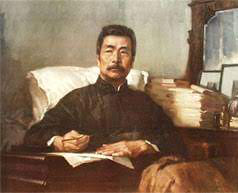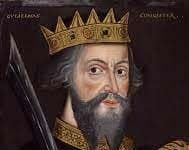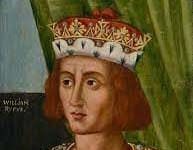Lu Xun | Brief Biography
Lu Xun | Brief Biography
Lu Xun (1881-1936) was a Chinese author, essayist, and translator, who is considered to be one of the greatest figures of modern Chinese literature. Born Zhou Shuren in Shaoxing, Zhejiang province, Lu Xun was the pen name he used for his literary works. He was an important figure in the New Culture Movement of the early 20th century, which aimed to introduce Western ideas and cultural practices to China.
Lu Xun was born into a family of scholars and his father, Zhou Boyi, was a successful government official. However, due to his father’s mismanagement of funds, the family suffered financial difficulties, and Lu Xun was forced to abandon his studies and work as a teacher. Despite this, he continued to study on his own and was exposed to Western literary works, which greatly influenced his writing.
In 1909, Lu Xun began his writing career with the publication of his short story “A Madman’s Diary.” This story, which was written in vernacular Chinese, was a departure from the classical Chinese that was typically used in literature at the time. It was also a departure from the traditional narrative style, as it was written as a diary entry, which was a new and innovative form of storytelling. The story was well-received, and it quickly established Lu Xun as a writer of great skill and originality.
Throughout his career, Lu Xun wrote many short stories and essays, including “The True Story of Ah Q,” “The New Year’s Sacrifice,” and “Diary of a Madman.” These works were characterized by their use of irony and satire to criticize Chinese society and culture. They also explored themes such as individualism, freedom, and the struggle against oppression.
In addition to his writing, Lu Xun was an important figure in the cultural and political life of China. He was a vocal critic of the Chinese government and a strong advocate for democracy and freedom of speech. He was also a supporter of the May Fourth Movement, a cultural and political movement that sought to introduce Western ideas and practices to China and to promote national independence.
Lu Xun‘s influence on modern Chinese literature cannot be overstated. His writing style and themes have inspired countless writers, and he is considered to be one of the founders of modern Chinese literature. He has been widely translated into many languages and is widely read and studied both in China and around the world. 0 0 0.
Sources:
“Lu Xun and His Legacy.” The China Quarterly, vol. 195, 2008, pp. 663–682. JSTOR, www.jstor.org/stable/20454500.
“Lu Xun and the Chinese Literary Revolution.” Modern Asian Studies, vol. 9, no. 4, 1975, pp. 493–506. JSTOR, www.jstor.org/stable/312074.
“Lu Xun and the May Fourth Movement.” Modern Chinese Literature, vol. 1, no. 1, 1985, pp. 1–20. JSTOR, www.jstor.org/stable/41354893. ***
N.B. The article originally belongs to the book entitled ‘Biographies of Writers Around the World‘ by Menonim Menonimus.
Books of Biography by M. Menonimus:
- The World Writers-Brief Biographies
- Introduction to World Writers
- Introduction to World Personalities
- Love of Reputed Persons
- Brief Biographies of Prominent Bengali Writers
- Brief Biographies of Eminent Monarchs
- Brief Biographies of Ancient Thinkers and Writers
- Brief Biographies of Eminent Generals and Conquerors
- Biographies of Writers Around the World ..
Books of Literary Criticism by M. Menonimus:
- World Short Story Criticism
- World Poetry Criticism
- World Drama Criticism
- World Novel Criticism
- World Essay Criticism
- Indian English Poetry Criticism
- Indian English Poets and Poetry Chief Features
- Emily Dickinson’s Poetry-A Thematic Study
- Walt Whitman’s Poetry-A Thematic Study
- Critical Essays on English Poetry
- Tawfiq al-Hakim’s Novel: Return of the Spirit-An Analytical Study
- Tawfiq al-Hakim’s Novel: ‘Yawmiyyat Naib Fil Arayaf’-An Analytical Study
- Analytical Studies of Some Arabic Short Stories
- A Brief History of Arabic Literature: Pre-Islamic Period (500 AD-622 AD)
- A Brief History of Arabic Literature: Early Islamic Period (622 AD-661 AD)
- Reviews on William Shakespeare’s Works
- Reviews of Charles Dickens’ Works
- Reviews of John Milton’s Literary Works
- Reviews of Some Iconic Travelogues …
Additional Searches:
- Famous Writers
- The Lives of the Poets
- 10 Best Generals of All Time
- Muslim Leaders in History
- Best Military Commanders of All Time …











